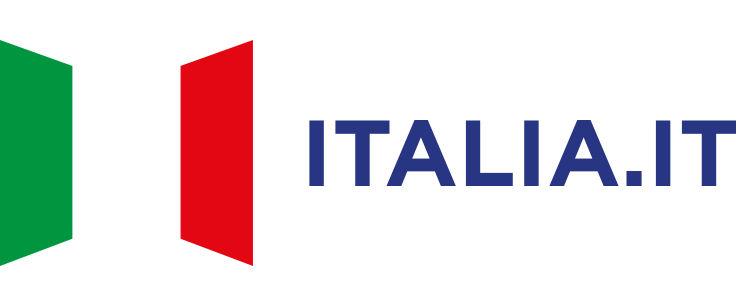Trenitalia invests in its fleet for a transportation that's increasingly modern, sustainable, and integrated
4 minutes
Trenitalia, the leading company of the Passenger Division of the FS Group, moves people and connects them to culture, fully respecting social and environmental sustainability, and promoting tourism through its network of over 7,000 trains per day.
As the Italian leader in passenger transportation, with High-Speed, Intercity, and Regional connections, it serves the entire Italian territory, covering short, medium, and long-distance routes, even reaching overseas cities like Lyon and Paris with Trenitalia France. Abroad, Trenitalia operates in France, the UK with Trenitalia UK, Germany with Netinera, Greece with Hellenic Train, and since autumn 2022, also in Spain with ILSA.
Trenitalia pioneered high-speed connections in Italy with its Frecce trains, becoming the world's first company to operate competitively in the sector. The company is committed to consolidating its competitiveness in the high-speed market by increasing connections and expanding into European railway markets.

The Passenger Division, led by Trenitalia, also includes Busitalia, Ferrovie del Sud Est, and the company Italian Tourist Trains, the latest company born within FS Group, created to offer an innovative approach between the railway service provider and the customers of the global tourism market, aiming to attract new modal shares of tourist mobility to the train, through means with standards, comfort, and services tailored to tourists.
Italian Tourist Trains debuted last December 15th with the Espresso Cadore, the overnight train connecting Rome to Cortina d'Ampezzo, which will also operate during the summer season. Italian Tourist Trains' summer offer is enriched with L'Espresso Versilia and L'Espresso Riviera. The former, departing from Milan, will lead to some of the most beautiful destinations in the Cinque Terre, then continue to Pisa and the splendid beaches of Versilia. The latter, on the other hand, will travel from Milan to Ventimiglia and cross the enchanting beaches of the Riviera dei Fiori, bordering the French Riviera.

As stated in the FS Group's ten-year industrial plan, the Passenger Division aims to create a multimodal business proposal whose advantage is to exploit the strengths of various modes, for integrated, economical, reliable, and sustainable transportation, with an increasingly personalized offer attentive to the needs of individual passengers according to the principles of environmental, social, and governance sustainability.
In this framework, there is FCO Connect, a product launched by Trenitalia, Aeroporti di Roma, and ITA Airways, which promotes an increasingly integrated travel experience, combining air and rail transport in a solution that favors customers' mobility needs.
The "train + plane" ticket allows passengers to purchase their flight and rail journey with check-in at the dedicated counters of the Leonardo da Vinci Fiumicino International Airport railway station, where passengers can also directly check their baggage and retrieve it at the final destination operated by the Company. Fiumicino is not the only one, there are 20, spread across 14 regions, the connections offered by the Italian State Railways Group that make the station-airport journey possible. Movements that can be by train, of course, but also by bus, people mover, and airlink. Through integrated solutions, it is also possible to reach 18 Italian ports.

Innovation and digitalization are strategic levers to achieve the ambitious goals of the Plan, and Trenitalia is constantly committed to enhancing its means and offering customers an increasingly door-to-door service. The evolution of Trenitalia's app is just the latest of the actions capable of demonstrating this. Thanks to the integration of Busitalia connections and the main parking lots of Italian stations of Metropark, it is able to offer those who choose to travel by train greater capillarity and an increasingly complete experience.
An improvement that makes Trenitalia's digital application ready to offer customers integrated first and last mile information and solutions to the railway service, favoring a modal shift towards more flexible, sustainable, and autonomous modes of transport, thus rationalizing the use of individual mobility.
Among the main innovations, the introduction on all sales channels of a "multimodal journey planner," which allows providing customers with mobility solutions integrated with the railway service, and the "electronic wallet," the new payment tool that helps simplify travelers' purchasing experience.

Moreover, as highlighted by a study by the School of Management of the Polytechnic University of Milan, tourism in Italy is growing at a faster pace than in 2019, with a transport sector that reached a value of 23.7 billion euros in 2023, an increase of 41% over 2022 but above all 9% over 2019. This is the synthesis of a change that is also involving train travel. Just think that at the end of March, there were over 10 million travelers who chose Trenitalia for their Easter travels. This represented a 5% increase compared to 2023.
In this context, Trenitalia's modernization plan continues, which involves renewing the fleet, functional to raise the quality standards of the service and offer increasingly sustainable mobility.
This is evidenced by the recent agreement, worth over a billion euros for the supply of 40 new Frecciarossa ETR 1000, between Trenitalia and Hitachi Rail, or that for the supply of 70 new Intercity Notte carriages financed under the PNRR funds for a value of approximately 140 million euros. The 70 carriages, destined for Intercity Notte services to and from Sicily, will be put into service by June 30, 2026. On March 25, the first of the seven hybrid Intercity trains connecting Calabria, Basilicata, and Puglia departed, purchased with PNRR funds directly assigned to Trenitalia. The new Trenitalia hybrid, produced by Hitachi, combines the technology of the latest generation trains with the typical travel experience of Intercity. To these are added deliveries for the Regional fleet: thanks to the new Rock, Pop, and Blues trains - which are contributing to lowering the fleet's average age - a more efficient, modern, and sustainable service is possible.


